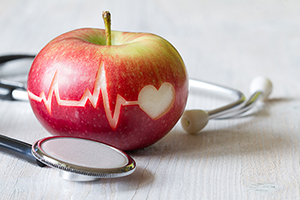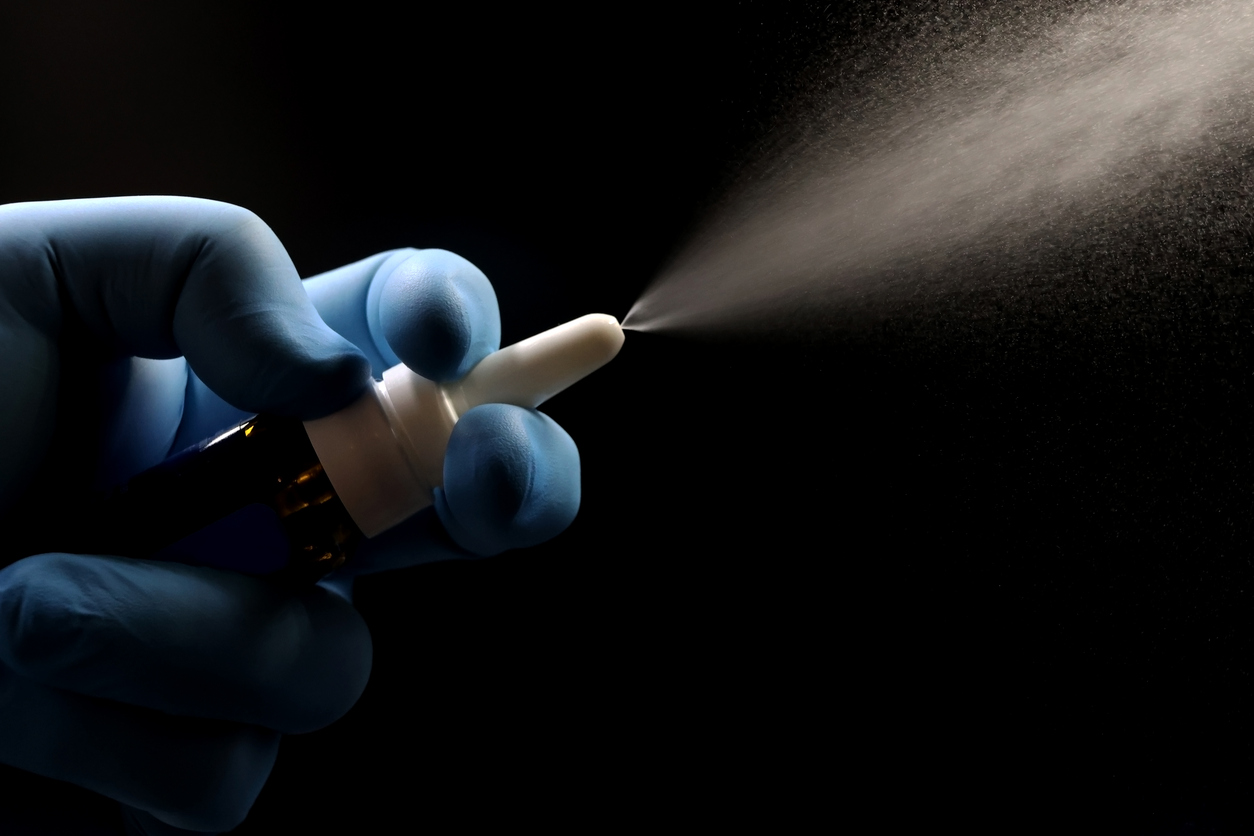Here you have it—a succinct rundown of the key nutrients you need to optimize cardiovascular health in simple, understandable terms, courtesy of our friends at Protocol for Life Balance. The research speaks volumes for nutritional support of heart health.
–Dr. Ronald Hoffman
This article contains content from one of our trusted sponsors.
A couple of years ago we published on this platform a review of dietary ingredients found in supplements that can help to support cardiovascular health. At that time, we discussed the benefits of menaquinone-7 (MK-7), ubiquinol, and nattokinase.* In this article we will provide a brief summary of the cardiovascular supporting properties of these three compounds, as well as information about other compounds that can contribute to cardiovascular health, such as omega-3 fatty acids, carnitine, hawthorn, grape seed extract, vitamin D3, CoQ10, and red yeast rice.*
As reviewed in our previous article, vitamin K2 is important for cardiovascular health.* Prospective observational studies have shown that higher intakes of dietary vitamin K2 are associated with healthier cardiovascular systems.* Randomized clinical trials have shown that menaquinone-7 (MK-7) supplementation (up to 360 mcg daily) results in significant improvement in markers of arterial stiffness.1-3*
Ubiquinol and CoQ10 share the same biological properties; ubiquinol is a reduced active form of CoQ10. At the molecular level, the ability of ubiquinol/CoQ10 to exchange electrons is central to cellular energy production.* Its powerful free radical neutralizing activity is important for the protection of biological membranes against oxidative stress, as well as for regenerating antioxidants such as vitamin C and E.*
Scientific studies indicate that ubiquinol, which has a superior bioavailability to other forms of CoQ10, can help to support normal cardiovascular function.* Indeed, in a randomized, double-blind, single-center trial with 51 individuals receiving 100 mg or 200 mg ubiquinol daily, the authors observed that ubiquinol significantly improved endothelial function as measured by flow-mediated dilation of the brachial artery.4*
CoQ10 is also regularly used in dietary supplements aiming to support cardiovascular health.* However, CoQ10 is relatively poorly absorbed by the gastrointestinal tract. This issue can be partially resolved by taking CoQ10 with a fat-containing meal.5 In clinical studies, oral dosages as low as 60 mg/day resulted in greater than baseline concentrations and improvements in certain hemodynamic parameters.6*
Finally, we revisit nattokinase, a bioavailable fibrinolytic enzyme isolated from natto, a traditional Japanese fermented soy food.* Nattokinase supports cardiovascular health by helping to maintain normal blood fluidity.* In a randomized, double-blind, placebo-controlled trial with 86 participants receiving nattokinase (2,000 FU/capsule daily) for 8 weeks, researchers observed a significant reduction in blood pressure already within the normal range.7*
Other vitamins and nutrients typically used in cardiovascular supporting supplements are omega-3 fatty acids, carnitine, and vitamin D3.*
Omega-3 fatty acids have been extensively studied for their cardiovascular supporting properties.* In fact, the U.S. Food and Drug Administration has attributed cardiovascular-related qualified health claims for omega-3 fatty acids.* However, the intake of omega-3 fatty acids in the typical North American diet is often suboptimal, especially in older age groups. It is currently estimated that most Americans have an omega-3 index of 4% or less, while 8% or more is considered ideal for the maintenance of cardiovascular health.8* To reach an omega-3 index of 8%, the recommendation is to increase the dietary intake of omega-3-rich foods and/or supplementing the diet with omega-3-rich supplements that are sustainably sourced and free of potentially harmful levels of heavy metals and contaminants such as PCBs and dioxins. One way to assess if your diet provides enough omega-3 fatty acids is to measure the omega-3 index in the blood. This simple at-home blood test represents the ratio of EPA and DHA over total fatty acids within red blood cells.
Carnitine is another nutrient often found in cardiovascular supporting supplements.* It has been chosen for its ability to support energy production.* It facilitates the transport of fatty acids across the inner mitochondrial membrane for subsequent β-oxidation, a process also known as the “carnitine shuttle.”* Fatty acids are the predominant substrate for energy production in skeletal and cardiac muscles.* In a double-blind, randomized clinical trial with 14 healthy adult volunteers, 24 weeks of supplementation with L-Carnitine Tartrate (Carnipure™, 2 g twice daily with 80 g of simple carbohydrates per intake) resulted in a significant increase in the total muscle carnitine content (21% as compared to baseline confirmed by biopsy), while it remained unchanged in the control group (80 g of carbohydrates twice daily).* When subjected to a standardized cycling exercise challenge, the carnitine group increased work output by 11% while the control group showed no change.* Additionally, the carnitine group utilized 55% less muscle glycogen (P < 0.05) during the challenge, which is consistent with an increase in lipid utilization for energy production.*
Among ingredients found in cardiovascular supporting supplements, vitamin D3 is often added as a synergistic agent with vitamin K2.* Further, preclinical research suggests that vitamin D may be involved in regulating blood pressure via the renin-angiotensin-aldosterone system, as well as in insulin metabolism, and it may directly impact vascular tissue.* It has been hypothesized that these proposed functions of vitamin D could explain the observed correlation between vitamin D deficiency and cardiovascular risk.9*
In addition to vitamins and nutrients, botanicals such as hawthorn, grape seed extract, and red yeast rice are common ingredients in cardiovascular supporting supplements.*
Hawthorn has a long traditional use in herbalism. Its extract has free radical scavenging and cardio-protective properties.* It regulates coronary blood flow and enhances oxygen flow and utilization by the heart.* Hawthorn is known for its ability to enhance heart contraction and has vasodilatory properties.*
Grape seed extract possesses naturally occurring polyphenolics that have been shown to have free radical neutralizing properties, and numerous studies have demonstrated its positive effects on cardiovascular health.* However, not all grape seed extracts are created equal. MegaNatural®-BP™ is a grapeseed extract standardized to a minimum of 90% polyphenols. This proprietary grapeseed extract has been extensively investigated in laboratory settings and in randomized clinical studies. Results from these investigations show that MegaNatural®-BP™ has powerful free radical scavenging properties and an ability to contribute to endothelial relaxation in laboratory settings.* It may also affect platelet aggregation.* In a randomized, placebo-controlled clinical trial in 24 adult volunteers receiving 150 mg or 300 mg grape seed extract daily for four weeks, normal blood pressure was significantly lowered in the grape seed group after four weeks versus baseline.*
Finally, red yeast rice is a natural product that has been traditionally used by Asian herbalists for centuries. It is produced by fermenting a red yeast (Monascus purpureus) with white rice. The product of fermentation known as red yeast rice is commonly used in cooking applications to enhance the color and flavor of foods as well as for the preservation of food. RYR consists of a multitude of compounds including polyketides, phytosterols, pigments, organic acids, amino acids, and many more. Among the bioactive compounds found in red yeast rice, at least 25 pigments have been isolated and extensively studied. In preliminary experiments, these pigments have been tested for their effects on lipid metabolism, support of normal cell division, and support of immune system response to normal biological stress.*
As described above, MK-7, ubiquinol, MegaNatural®-BP™ grape seed extract, L-carnitine and nattokinase are clinically evaluated compounds working at different levels of the structure and function of blood vessels and the heart and cardiovascular system.* In addition, nattokinase and vitamin K are known to impact blood coagulation in various different ways and may help maintain normal blood flow.* These complementary mechanisms of actions can contribute to and support cardiovascular health.*
Protocol For Life Balance® offers a wide range of cardiovascular supporting supplements using the ingredients described here, from MK-7 alone or in combination with other ingredients at dosages of up to 300 mcg per capsule, ubiquinol at 100 mg and 200 mg per softgel, and nattokinase at 2,000 FU per capsule. We have also combined these ingredients in botanical-nutrient blends such as Red Yeast Rice Plus, Cardio Tri-Plex™, and our newest addition, Clinical Cardio-6. Protocol For Life Balance® also has an extensive line of additional products that are useful for cardiovascular support, allowing you to tailor your supplementation program to your unique cardiovascular health needs.*
References:
- Knapen MH, Braam LA, Drummen NE, Bekers O, Hoeks AP, Vermeer C. Thromb Haemost. 2015;113(5).
- Dalmeijer GW, van der Schouw YT, Magdeleyns E, Ahmed N, Vermeer C, Beulens JWJ. Atherosclerosis.225(2):397-402.
- Haugsgjerd TR, Egeland GM, Nygård OK, et al. BMJ Open. 2020;10(5):e035953.
- Sabbatinelli J, Orlando P, Galeazzi R, et al. Nutrients. 2020;12(4):1098.
- Bhagavan HN, Chopra RK. Free Radic Res. 2006;40(5):445-453.
- Jones K, Hughes K, Mischley L, McKenna DJ. Alternative therapies in health and medicine. 2004;10(1):22-30; quiz 31.
- Kim JY, Gum SN, Paik JK, et al. Hypertension research: official journal of the Japanese Society of Hypertension. 2008;31(8):1583-1588.
- Harris WS. Pharmacological Research. 2007;55(3):217-223.
- Judd SE, Tangpricha V. Am J Med Sci. 2009;338(1):40-44.
* These statements have not been evaluated by the Food and Drug Administration. These products are not intended to diagnose, treat, cure, or prevent any disease.








